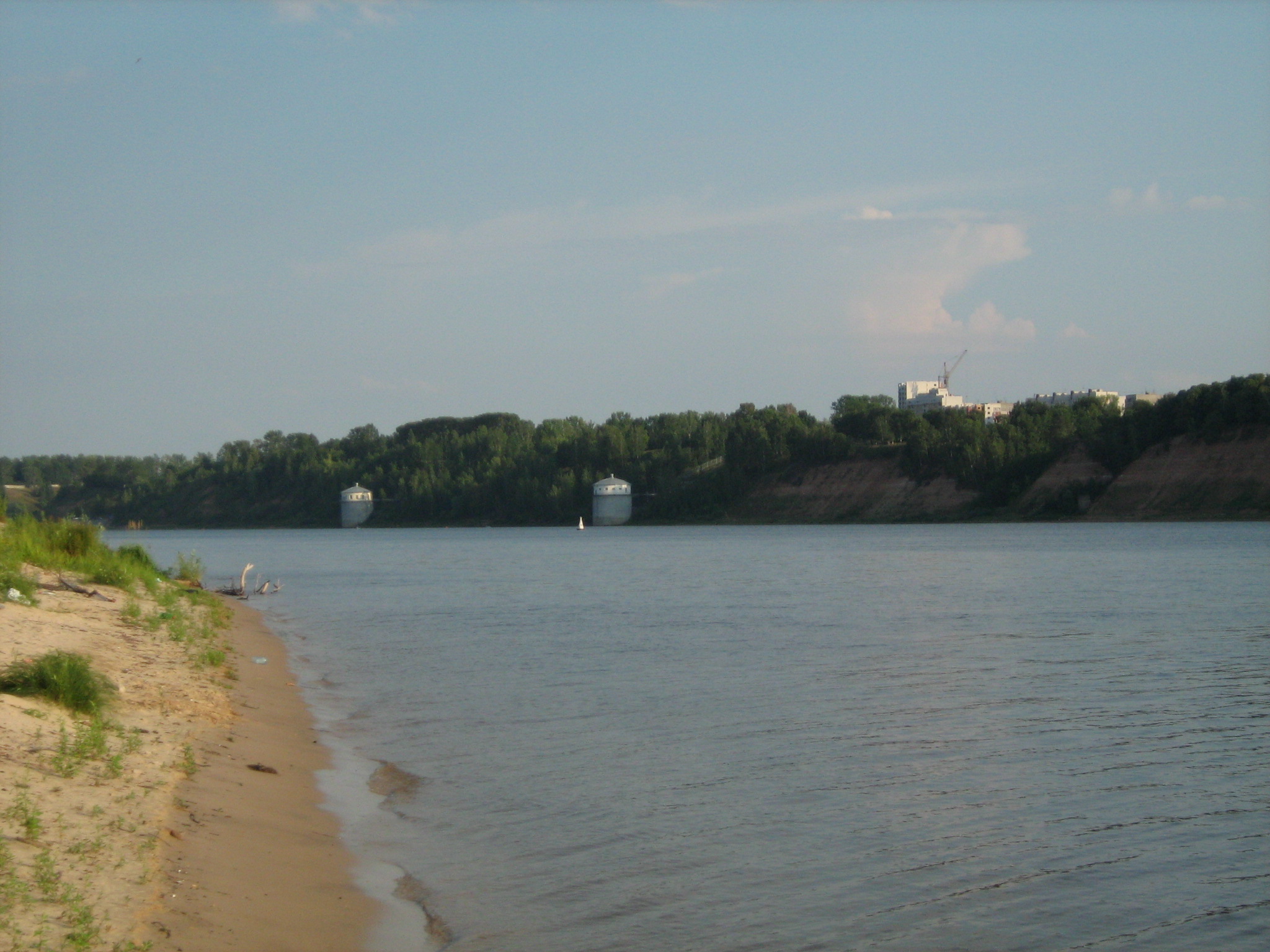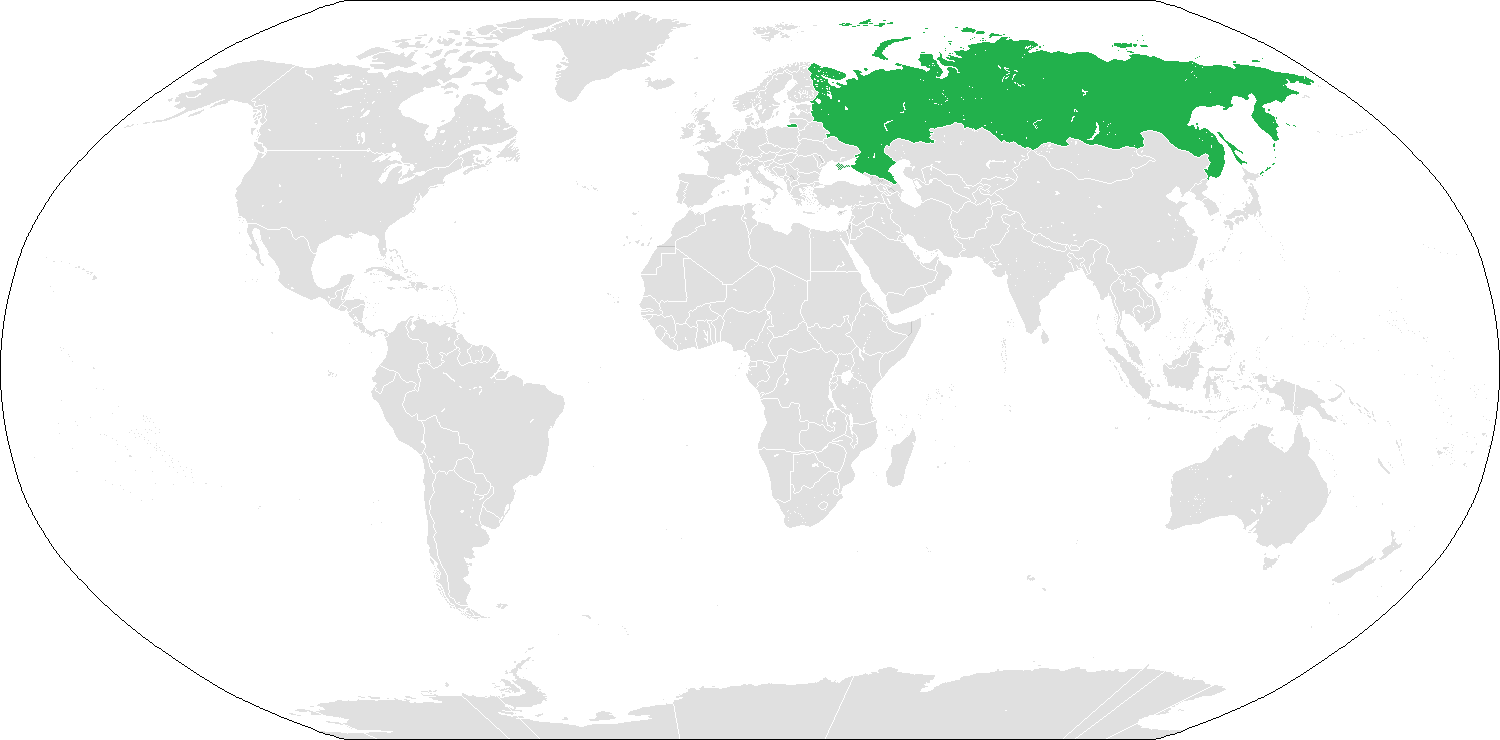|
Ministry Of Natural Resources And Environment (Russia)
The Ministry of Natural Resources and Environment of the Russian Federation (russian: Министерство природных ресурсов и экологии Российской Федерации) is a ministry of the Government of Russia responsible for managing natural resources and the environment. Alexander Kozlov has served as Minister of Natural Resources and Environment since 10 November 2020. History The ancestor of the Ministry of Natural Resources and the Environment is the State Mining and Geological Service, established by Peter the Great on October 2, 1700. After the collapse of the Soviet Union, the Ministry of Environment and the Ministry of Natural Resources were created on August 14, 1996. They were combined to form the Ministry of Natural Resources and the Environment on May 28, 2008. Activities The Ministry of Natural Resources and the Environment is responsible for the creation and enforcement of policies and regulations dealing with the environmen ... [...More Info...] [...Related Items...] OR: [Wikipedia] [Google] [Baidu] |
Government Of Russia
The Government of Russia exercises executive power in the Russian Federation. The members of the government are the prime minister, the deputy prime ministers, and the federal ministers. It has its legal basis in the Constitution of the Russian Federation and the federal constitutional law "On the Government of the Russian Federation". The Apparatus of the Government of Russia is a governmental body which administrates the activities of the government. According to the 1991 amendment to the 1978 constitution, the President of Russia was the head of the executive branch and headed the Council of Ministers of Russia. According to the current 1993 constitution, the president is not a part of the government of Russia, which exercises executive power. However, the president appoints the prime minister. History The large body was preceded by Government of the Soviet Union. Since the Russian Federation emerged from 1991 to 1992, the government's structure has undergone several m ... [...More Info...] [...Related Items...] OR: [Wikipedia] [Google] [Baidu] |
Water Supply And Sanitation In Russia
In Russia, approximately 70 per cent of drinking water comes from surface water and 30 per cent from groundwater. In 2004, water supply systems had a total capacity of 90 million cubic metres a day. The average residential water use was 248 litres per capita per day.United NationSANITATION COUNTRY PROFILE RUSSIAN FEDERATION 2004 One quarter of the world’s fresh surface and groundwater is located in Russia. The water utilities sector is one of the largest industries in Russia serving the entire Russian population. History By the end of the nineteenth century, sewerage was only present in 63 Russian cities (5.12%). The year of 1870 was the turning point in urban sanitation in Russia: after the reform of city self-government, the responsibility to address the economic issues related to the urban environment and its sanitary conditions fell upon local authorities. In 1911 the central government begun to provide financial assistance to cities in the fight against epidemics and impr ... [...More Info...] [...Related Items...] OR: [Wikipedia] [Google] [Baidu] |
Forestry In Russia
The Russian forestry industry is a set of Russian industries related to wood harvesting and processing. As one of the oldest sectors in the country's economy, Russia's timber industry continues to bring in about $20 billion per year. Russia has more than a fifth of the world's forests, making it the largest forest country in the world. According to data for 2015, the total forest area has exceeded 885 million hectares, representing 45% of the total area of the country. The stock of wood in the area was 82 billion cubic meters. A significant proportion of revenue from the industry is generated by the export of raw materials from sawing logs. For a long time Russia was the main supplier of raw wood material in Europe. However, according to a 2012 study by the Food and Agriculture Organization of the United Nations and the Government of the Russian Federation, [...More Info...] [...Related Items...] OR: [Wikipedia] [Google] [Baidu] |
Forestry Ministries
Forestry is the science and craft of creating, managing, planting, using, conserving and repairing forests, woodlands, and associated resources for human and environmental benefits. Forestry is practiced in plantations and natural stands. The science of forestry has elements that belong to the biological, physical, social, political and managerial sciences. Forest management play essential role of creation and modification of habitats and affect ecosystem services provisioning. Modern forestry generally embraces a broad range of concerns, in what is known as multiple-use management, including: the provision of timber, fuel wood, wildlife habitat, natural water quality management, recreation, landscape and community protection, employment, aesthetically appealing landscapes, biodiversity management, watershed management, erosion control, and preserving forests as " sinks" for atmospheric carbon dioxide. Forest ecosystems have come to be seen as the most important component ... [...More Info...] [...Related Items...] OR: [Wikipedia] [Google] [Baidu] |
Organizations Based In Moscow
An organization or organisation (Commonwealth English; see spelling differences), is an entity—such as a company, an institution, or an association—comprising one or more people and having a particular purpose. The word is derived from the Greek word ''organon'', which means tool or instrument, musical instrument, and organ. Types There are a variety of legal types of organizations, including corporations, governments, non-governmental organizations, political organizations, international organizations, armed forces, charities, not-for-profit corporations, partnerships, cooperatives, and educational institutions, etc. A hybrid organization is a body that operates in both the public sector and the private sector simultaneously, fulfilling public duties and developing commercial market activities. A voluntary association is an organization consisting of volunteers. Such organizations may be able to operate without legal formalities, depending on jurisdiction, includin ... [...More Info...] [...Related Items...] OR: [Wikipedia] [Google] [Baidu] |
Environment Ministries
Environment most often refers to: __NOTOC__ * Natural environment, all living and non-living things occurring naturally * Biophysical environment, the physical and biological factors along with their chemical interactions that affect an organism or a group of organisms Other physical and cultural environments *Ecology, the branch of ethology that deals with the relations of organisms to one another and to their physical surroundings *Environment (systems), the surroundings of a physical system that may interact with the system by exchanging mass, energy, or other properties *Built environment, constructed surroundings that provide the setting for human activity, ranging from the large-scale civic surroundings to the personal places *Social environment, the culture that an individual lives in, and the people and institutions with whom they interact *Market environment, business term Arts, entertainment and publishing * ''Environment'' (magazine), a peer-reviewed, popular envir ... [...More Info...] [...Related Items...] OR: [Wikipedia] [Google] [Baidu] |
Federal Ministries Of Russia
Federal or foederal (archaic) may refer to: Politics General *Federal monarchy, a federation of monarchies *Federation, or ''Federal state'' (federal system), a type of government characterized by both a central (federal) government and states or regional governments that are partially self-governing; a union of states *Federal republic, a federation which is a republic *Federalism, a political philosophy *Federalist, a political belief or member of a political grouping *Federalization, implementation of federalism Particular governments *Federal government of the United States **United States federal law **United States federal courts * Government of Argentina *Government of Australia *Government of Pakistan *Federal government of Brazil *Government of Canada *Government of India *Federal government of Mexico * Federal government of Nigeria *Government of Russia *Government of South Africa *Government of Philippines Other *''The Federalist Papers'', critical early arguments in f ... [...More Info...] [...Related Items...] OR: [Wikipedia] [Google] [Baidu] |
Economy Of Russia
The economy of Russia has gradually transformed from a planned economy into a mixed market-oriented economy. —Rosefielde, Steven, and Natalia Vennikova. “Fiscal Federalism in Russia: A Critique of the OECD Proposals.” Cambridge Journal of Economics, vol. 28, no. 2, Oxford University Press, 2004, pp. 307–18, . —Robinson, Neil. “August 1998 and the Development of Russia’s Post-Communist Political Economy.” Review of International Political Economy, vol. 16, no. 3, Taylor & Francis, Ltd., 2009, pp. 433–55, . —Charap, Samuel. “No Obituaries Yet for Capitalism in Russia.” Current History, vol. 108, no. 720, University of California Press, 2009, pp. 333–38, . —Rutland, Peter. “Neoliberalism and the Russian Transition.” Review of International Political Economy, vol. 20, no. 2, Taylor & Francis, Ltd., 2013, pp. 332–62, . —Kovalev, Alexandre, and Alexandre Sokalev. “Russia: Towards a Market Economy.” New Zealand International Review, vol. 1 ... [...More Info...] [...Related Items...] OR: [Wikipedia] [Google] [Baidu] |
Environmental Issues In Russia
Many of the issues have been attributed to policies that were made during the early Soviet Union, at a time when many officials felt that pollution control was an unnecessary hindrance to economic development and industrialization, and, even though numerous attempts were made by the Soviet government to alleviate the situation in the 1960s, 1970s and 1980s, the problems were not completely solved. By the 1990s, 40% of Russia's territory began demonstrating symptoms of significant ecological stress, largely due to a diverse number of environmental issues, including deforestation, energy irresponsibility, pollution, and nuclear waste. According to Russia's Ministry of Natural Resources and Environment, Russia is currently warming 2.5 times faster than the rest of the globe. Wildlife Russia has many protected areas, such as zapovedniks and natural parks, which are made to preserve the natural state of environments. There are currently 101 zapovedniks that cover a total of over 33. ... [...More Info...] [...Related Items...] OR: [Wikipedia] [Google] [Baidu] |
Environment Of Russia
The environment of Russia Biota Climate The climate of Russia is formed under the European peninsula. The enormous size of the country and the remoteness of many areas from the sea result in the dominance of the continental climate, which is prevalent in European and Asian Russia except for the tundra and the best extreme southeast. Mountains in the south obstructing the flow of cold air masses from the Arctic Ocean and the plain of the south and north makes the country open to Pacific and Atlantic influences. Geography Land Water Climate change Energy Pollution control Protected areas Waste management 141 019 100 tonnes of hazardous waste was generated in Russia in 2009 Environmental policy and law Treaties and international agreements Russia is a signatory to a number of treaties and international agreements: ;Party to: : Air Pollution, Air Pollution-Nitrogen Oxides, Air Pollution-Sulphur 85, Antarctic-Environmental Protocol, Antarctic Treaty, Biod ... [...More Info...] [...Related Items...] OR: [Wikipedia] [Google] [Baidu] |
Dmitry Kobylkin
Dmitry Nikolayevich Kobylkin (russian: Дмитрий Николаевич Кобылкин, born 7 July 1971 in Astrakhan) is a Russian politician who served as Governor of Yamalo-Nenets Autonomous Okrug from 4 May 2012 until 29 May 2018. and as Minister of Natural Resources of the Russian Federation since May 2018 until November 2020. Biography Born July 7, 1971 in Astrakhan. 1993: Graduated from the Ufa Oil Institute specialising in mining engineering and geophysics. 2003: Graduated from the occupational retraining institute at the Ural Academy of Public Administration specialising in State and Municipal Management. 1994-1995: Geologist with the Tarkosalinskoye oil and gas exploration expedition. 1996-2001: Personnel Director, First Deputy General Director at Purneftegazgeologiya. Starting in 2000, led the development of the Khancheiskoye field and managed oil and gas exploration there. May 2001: Appointed General Director of Khancheineftegaz. From 2002: First Deputy H ... [...More Info...] [...Related Items...] OR: [Wikipedia] [Google] [Baidu] |
Sergey Donskoy
Sergey Yefimovich Donskoy (russian: Серге́й Ефимович Донской born 13 October 1968) is a Russian politician, and since May 2012 the Minister of Natural Resources and Environment of Russia. He was born in Elektrostal. In 1992, he finished his studies in Gubkin Russian State University of Oil and Gas The Gubkin Russian State University of Oil and Gas (russian: Российский государственный университет нефти и газа имени И. М. Губкина) is a public university in Moscow, Russia. The univer .... On May 21, he was appointed to the role of Minister of Natural Resources and Environment of Russia in Dmitry Medvedev's Cabinet. References External links {{DEFAULTSORT:Donskoy, Sergey 1968 births Living people Politics of Russia Environment ministers Government ministers of Russia ... [...More Info...] [...Related Items...] OR: [Wikipedia] [Google] [Baidu] |




